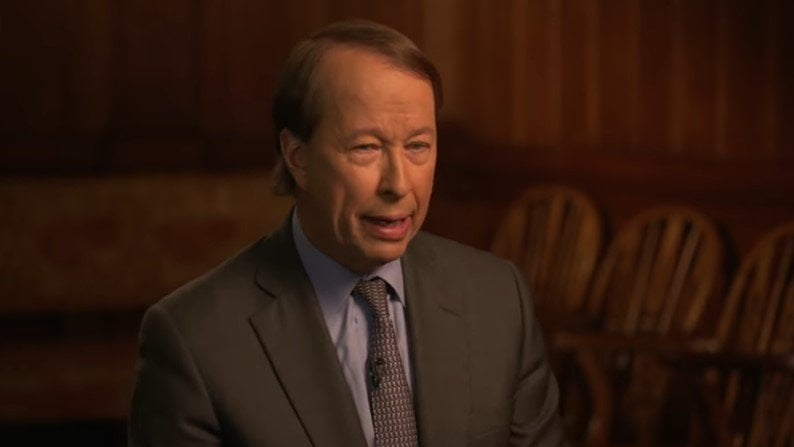In Part Two: The outlook for private equity with financial thought leader Tony James, Executive Vice Chairman, Blackstone. WEALTHTRACK #1522, broadcast on November 16, 2018.
Blackstone’s Tony James Discusses the Outlook for Private Equity and Other Alternative Investments
Q3 hedge fund letters, conference, scoops etc
Transcript
They're really not opaque they're opaque to people that aren't in the funds. But for the people who are in the funds they know every investment OK. They're not opaque they're not publicly quoted so I'm a non investor can't open the newspaper and read or write. But anyone who's in there knows exactly what's in there.
So they're not really opaque just first of all and for the best and certainly anyone in investing in a state pension fund or whatever don't know what's in your they're illiquid investment.
Sure that's true but the managers of the state pension that are choosing whether to invest day do they do. And so so they invest so so they're not paying. OK. Really. And then secondly the second thing there is we do. Just like when you get your account from Merrill Lynch every month you get a mark to market. We do that every month. You know exactly what every fund is worth on mark to market base.
And it's just as pure as marking public securities except it's not liquid. So in fact you really can't get it that way you can't you can't sell it with no value. Right. OK.
So it's a question of value but you're stuck in it. But you know you've got to value it right. That value is incredibly rigorous because it has to be first of all it's scrutinized by every consultant in America by every plaintiffs lawyer in America by the SCC and so on so forth. It's an incredibly rigorous market its monthly just like your monthly statement from Merrill Lynch. So you're not really adrift as to what you got there you're really not you just know some of that some of those products you can you can get in and out of but most of them you know you're you decide to put it right. Real estate investment and you're in that you own a building and you know what is worth but. But until we sell it you can't get your money.
So when when Blackstone started in 1985 for instance I don't know there were in the there were hundreds maybe hundreds if that private equity firms. And now there are thousands and I know when the hedge fund industry is very tiny and now it's absolutely huge. So money has been pouring into these two spaces that there's a lot of money chasing you know kind of fewer and fewer good deals. What is your assessment of the so private equity hedge fund environment.
Now you know after you know now in the ninth year of a bull market I think those those two things the the private markets and hedge funds are are very different answers to that question. OK. Ms start with the private markets. Yes a lot of money has come into it but what we've been doing this for 30 years and like clockwork were eight 900 basis points a year. So eight or nine percent a year higher return than the comp Republic market. And that is undiminished today really. So is it market returns come down. You'd expect you're maintaining your premium that comes down. In fact that premium some people used to think well these private markets private equity real estate is riskier. So OK they'll it's like it's public as public stocks on leverage.
Nothing could be further from the truth really sold since the leverage issue is something that has been brought up to gas them from wealth. Again we're looking at the private equity space and they're saying you know this is these are really leveraged in that that's where they're getting their right their return and that means from.
You're saying that's not the case now.
And so what happens is in highly volatile markets when when when they're when when they're plunging. Private equity maintains its premium returns. Or they increase. So back in 2008 9. Are private equity portfolios fell a lot less in the public markets did. And and so. So what's going on here. Right. Right. And the important thing to remember is we're buying whole buildings whole companies whatever else where we can and as the control investor we can go in there and tell the company OK you're going to cut costs or you're gonna invest more in R and D to get new products or we're going to take advantage of the turmoil out there. And the other companies cutting back as they have to be quarterly earnings. You don't. So let this is the time you can strategically lean forward.






